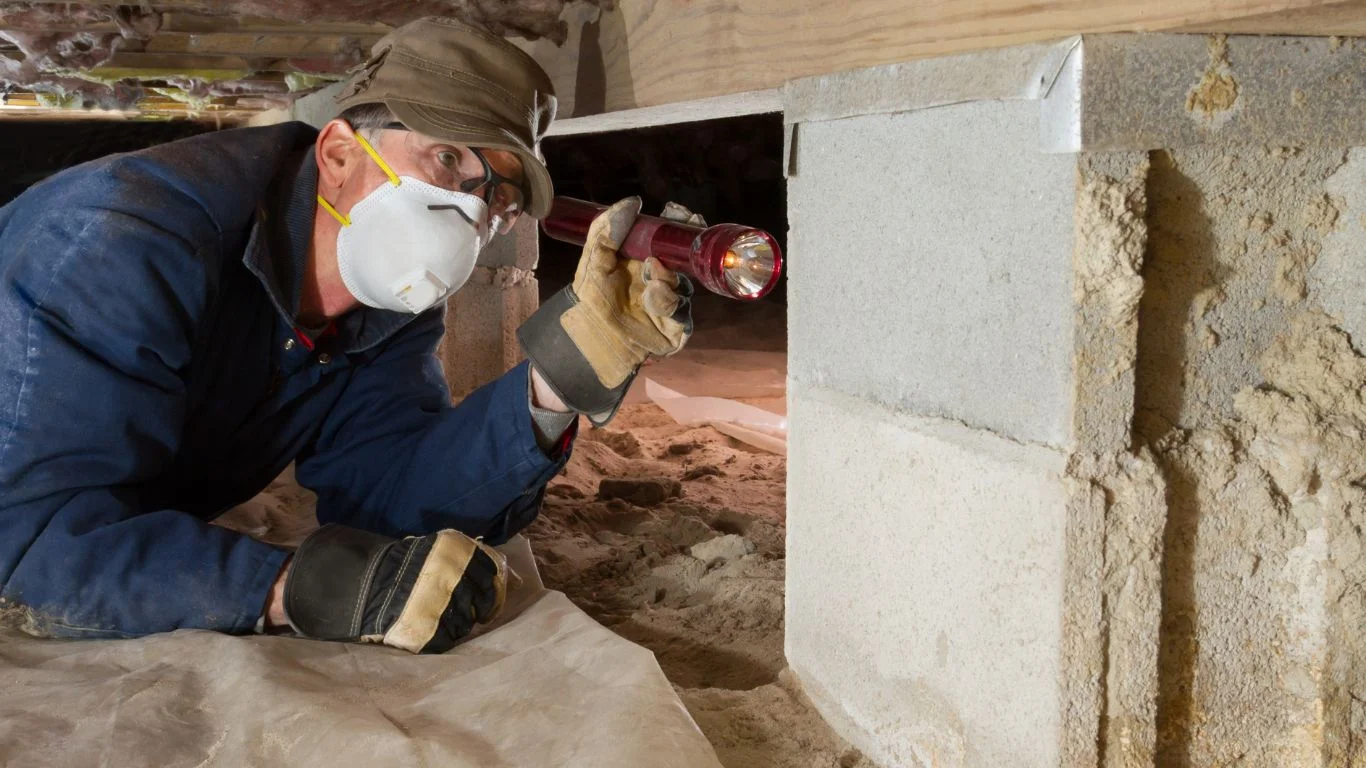Termites Pest Control
Termites are one of the most destructive pests for homes and buildings, causing damage that often goes unnoticed until it’s too late.
Our residential control services focus on early detection, safe treatment, and long-term protection to keep your property structurally sound.
Whether you’re dealing with an active infestation or looking to prevent one, the right professional termite control service can save you thousands in future repairs and provide lasting peace of mind.
Why Termites Invade Homes and Why You Should Act Fast
Termites are always searching for wood, moisture, and warmth. In Ipswich, the climate provides perfect conditions for termite activity all year round.
They often enter homes through underground tunnels or small cracks in the foundation, then silently feed on timber from the inside out.
Detailed overview of termite behaviour, risks, and control methods for homeowners.
The biggest problem with termites is that they usually go undetected for months.
By the time damage is visible, the structure of your home could already be compromised. Acting fast helps you:
- Avoid costly repairs
- Protect the structural integrity of your property
- Stop termites from spreading to other areas
- Keep your home safe and secure
A termite inspection and treatment plan can make all the difference.
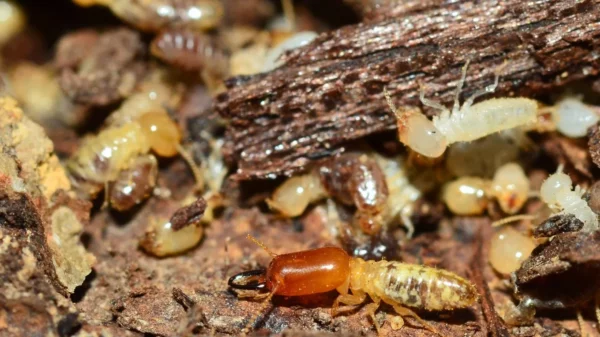
Common Types of Termites
There are a few termite species commonly found in Ipswich, each with different habits and levels of risk:
Subterranean Termites
These are the most destructive and common termites in Australia. They live underground or in hidden, moist spaces like beneath buildings or inside walls. Subterranean termites build mud tubes to reach above-ground timber and rely on moisture to survive, often foraging up to 50 metres from their nest.
Key Species:
Coptotermes acinaciformis – Highly destructive, nests in trees, stumps, and buildings.
C. frenchi & C. lacteus – Smaller, still harmful to timber structures.
Heterotermes ferox – Attacks soft, weathered timber like fences and decking.
Schedorhinotermes intermedius – Aggressive, hard to detect due to multiple underground nests.
Nasutitermes & Microcerotermes spp. – Often found in outdoor timber, particularly in humid or coastal areas.
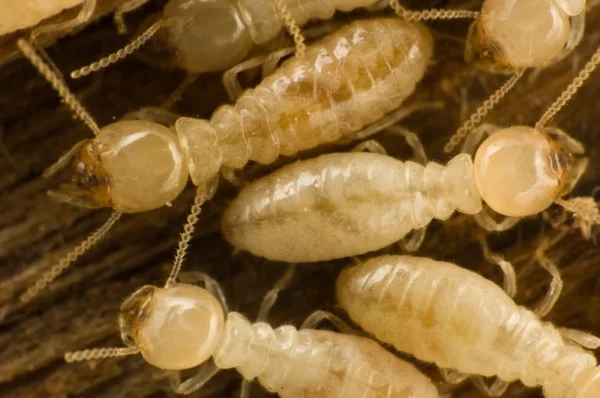
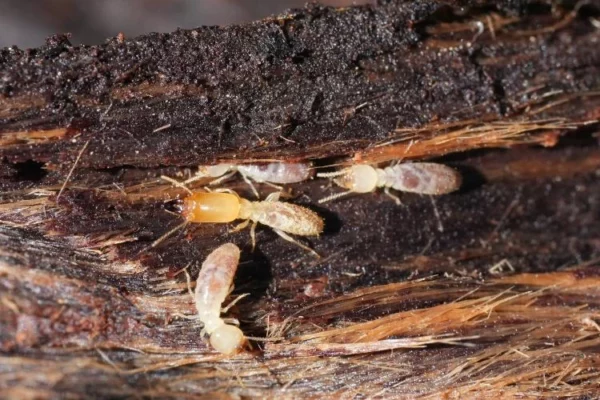
Drywood Termites
Drywood termites don’t need soil or moisture from outside sources. They live entirely inside dry timber, including furniture, floors, and walls, often going unnoticed for years.
Common Species:
Cryptotermes spp. – Found in furniture and skirting boards, mostly in humid areas.
Cryptotermes brevis – An invasive pest that infests furniture and is a declared threat under Australia’s Biosecurity Act.
Dampwood Termites
Dampwood termites prefer wood that remains moist, such as timber in contact with soil, leaky plumbing, or decaying trees. They usually live inside the wood they feed on, creating large open galleries. Colonies are relatively small and can be active for years before being discovered, often when swarming occurs.
These termites are rarely a major problem in homes, but their presence typically points to a moisture issue. Eliminating the water source is usually enough to control them.
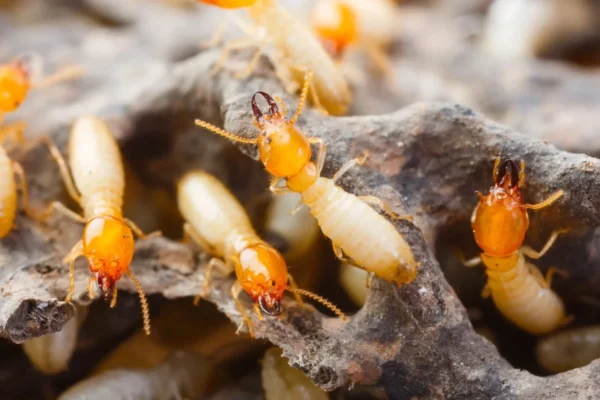
Information on different termite species and effective management strategies to protect properties. Knowing the species is key to choosing the right treatment and stopping future problems.
Termites are often called “silent destroyers” because they can be hard to spot. Some signs to look for include:
- Hollow-sounding timber or crumbling wood
- Mud tunnels on walls, stumps, or foundations
- Swarms of winged insects inside or around your home
- Discarded wings near windows or doors
- Small piles of droppings that look like sawdust
- Tight-fitting doors or windows caused by warping wood
If you notice any of these signs, it’s time to book a professional inspection.
Keeping termites away takes a mix of good habits and routine maintenance. Some simple ways to reduce your risk include:
- Fix any leaks or drainage issues that keep areas damp
- Store firewood and timber away from your home
- Avoid using mulch too close to the foundation
- Seal gaps in walls, floors, and around pipes
- Make sure vents and weep holes are clear and unblocked
- Get regular termite inspections from a licensed pest control provider
Prevention is always cheaper and easier than repair.
Early detection is key, but termites don’t always show obvious signs. If you suspect there may be termites, watch out for:
- Visible mud tunnels or “shelter tubes”
- Hollow wood that’s easy to break
- Swarmers (flying termites) during warm, humid days
- Noises inside walls, like faint clicking or rustling
- Sagging floors or warped window frames
These are signs that a colony might already be active, and urgent treatment is needed.
Termite control isn’t something you want to handle on your own.
A professional pest controller will know how to find the source, treat the issue effectively, and help stop it from happening again. You’ll get:
- A detailed inspection report
- The right treatment for your property and situation
- Peace of mind knowing the job’s been done properly
- Tips on keeping termites out for good
RJM Pest Solutions provides tailored termite control services in Ipswich, helping homeowners stay protected year-round. Our team understands how termites behave in local conditions and uses up-to-date methods to tackle infestations.
Our Industry Expertise
Choosing RJM Pest Solutions means getting reliable, professional, and long-lasting pest control services designed to keep your property pest-free. Here’s what sets us apart:
Safe & Effective Treatments
Safe & Effective Treatments
Long-Term Pest Prevention
Long-Term Pest Prevention
Customised Pest Control Plans
Customised Pest Control Plans
Fast & Reliable Service
Fast & Reliable Service
Experienced & Certified Technicians
Experienced & Certified Technicians
Affordable & Transparent Pricing
Affordable & Transparent Pricing
With RJM Pest Solutions, you get peace of mind knowing your property is protected by experts committed to quality and customer satisfaction.
If you’re in Ipswich and suspect termites may be active in your home, don’t wait for the damage to get worse.
Termite problems only grow over time, and the longer you leave it, the more costly it becomes.
Getting help from a qualified technician is the best way to protect your property.
RJM Pest Solutions can inspect your home, explain the treatment options, and help you put a long-term prevention plan in place.








